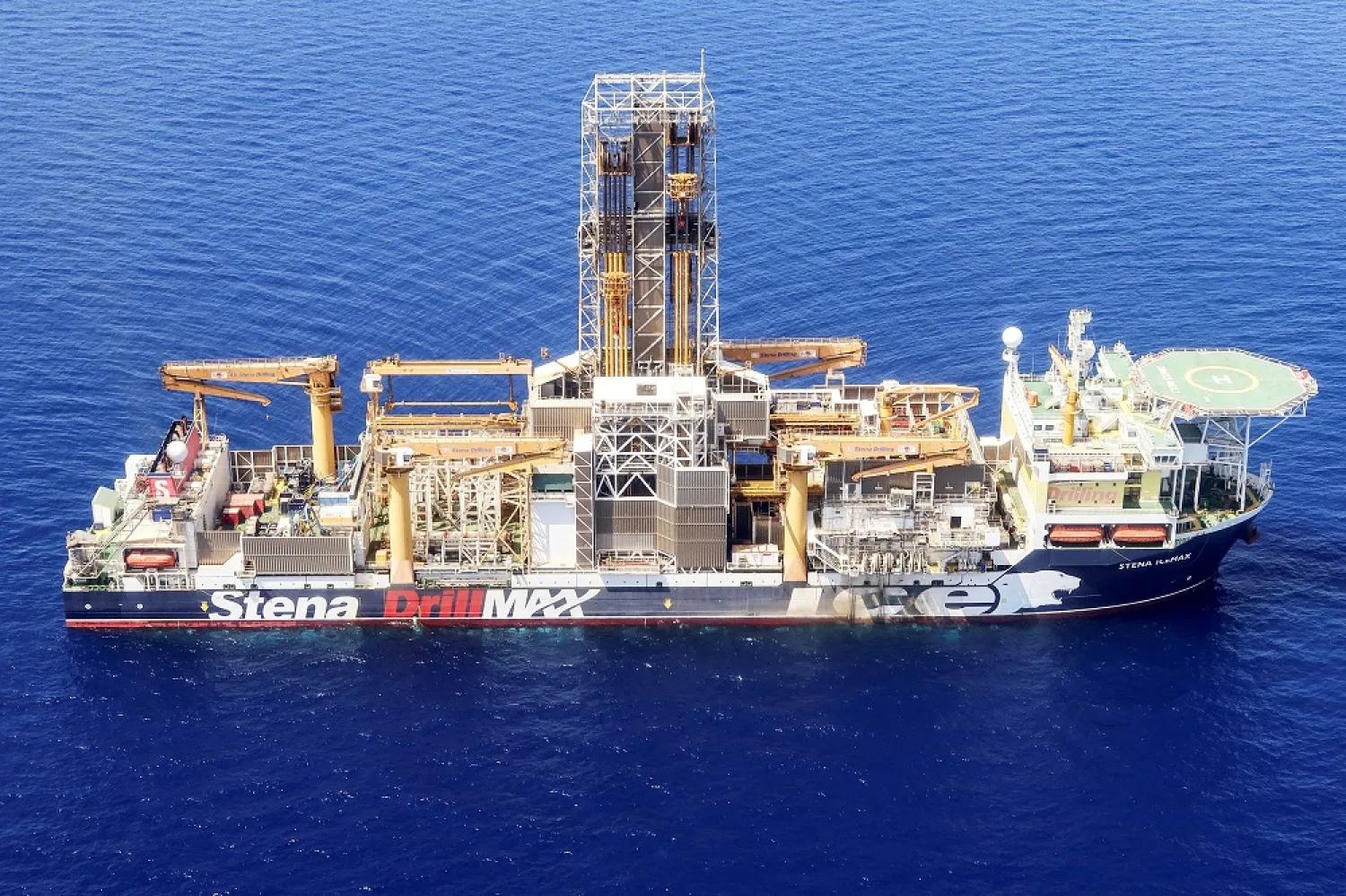Hezbollah chief Hassan Nasralla’s recent remarks over the marine demarcation dispute between Lebanon and Israel have raised alarm in Beirut that he would act alone should disagreements remain unresolved.
Nasrallah had set a September deadline for an agreement to be reached over the marine border, warning that he would act should the dispute linger.
Political forces condemned his remarks, saying the “Nasrallah is again monopolizing the state’s decision of war and peace.”
Earlier this month, the Israeli military said it shot down three unmanned aircraft launched by Hezbollah heading toward an area where an Israeli gas platform was recently installed in the Mediterranean Sea. Hezbollah confirmed it had launched three unarmed drones toward the disputed maritime area.
The launch of the drones appeared to be an attempt by Hezbollah to influence US-brokered negotiations between Israel and Lebanon over their maritime border, an area that is rich in natural gas.
Lebanon claims the Karish gas field is disputed territory, while Israel says it lies within its internationally recognized economic waters. The United States has been mediating indirect negotiations since October 2020.
US energy envoy Amos Hochstein is expected in Beirut by the end of the month as part of efforts to resolve the border dispute.
Strong Lebanon bloc MP Elias Bou Saab said on Tuesday: “Lebanon is carrying out the border negotiations from a position of strength.”
He added that the negotiations are positive and a solution could be reached, vowing that Beirut will not abandon its rights or partner with Israel, an enemy of Lebanon.
On Monday, Nasrallah warned that if Israel were to begin extracting gas from the Karish field in September, before Lebanon claims its rights, “then we are headed towards a problem.”
“We have set our goal and we will march firmly towards it,” he said in televised remarks.
“The Lebanese state is unable to take the right decision that would protect Lebanon and its wealth and so, the resistance [Hezbollah] will have to take that decision,” he added.
Observers interpreted Nasrallah’s remarks as consolidation of his armed party’s hegemony over the state and all aspects of life.
Vocal Hezbollah critic MP Ashraf Rifi warned that such rhetoric will lead to Lebanon’s “demise”.
He told Asharq Al-Awsat that Lebanon is a diverse country and no one single party can use regionally-backed weapons to eliminate the state and impose its will over others.
“Nasrallah’s agenda is based on weakening the state ahead of its elimination and leading the country towards complete collapse, so that in the end he would claim that he is the state,” he added.
“He must understand, however, that Lebanon has never been and will never be a part of Iran,” Hezbollah’s main backer, continued the former minister.
The forces of opposition and change will organize their ranks at parliament and government to confront this agenda, stressed Rifi.
Former MP Fares Soaid interpreted Nasrallah’s remarks as alarming sectarian rhetoric.
He told Asharq Al-Awsat that Nasrallah attempted to claim that “his [Shiite] sect is unique from others in Lebanon because of its struggle for Lebanon.”
“It is as if he is saying that he is the ultimate ruler and that he has the right to accuse other sects of treason,” he added.
He noted that Nasrallah had in the past accused Sunnis of being terrorists, and now, he is accusing Christians of being Israeli agents, citing the arrest of a cleric who was detained after returning from the Palestinian Territories.
“Keeping up such rhetoric will lead Lebanon to a boiling point. Past experience has shown that no one party can impose its views on all other Lebanese,” Soaid stressed.
Caretaker Foreign Minister Abdallah Bou Habib had expected that a final agreement between Lebanon and Israel could be reached by September, but Nasrallah’s remarks have cast doubt over the prospect.
Former Lebanese Forces MP Antoine Zahra said Nasrallah is “aware that his party will find itself in crisis after the Russian war on Ukraine and as the balance in the region returns to the Arab countries' favor.”
“He is fearful that Iran would stop support to its militias in the region,” he added.
President Michel Aoun, a Hezbollah ally, had notably not issued a statement to comment on Nasrallah’s remarks.
Zahra said it was no surprise.
He noted how Nasrallah had initially said that the state was in charge of the border negotiations. He then followed that up by launching the drones towards Karish, in a move that was aimed at restoring Hezbollah’s role in the negotiations.
He remarked that Hezbollah chose to launch the drones just as progress was reportedly achieved in the negotiations.
“Nasrallah wanted to declare that he had the final say over the issue,” explained Zahra, a move that ultimately undermines the president, who has jurisdiction in such negotiations and in approving treaties and spending.









